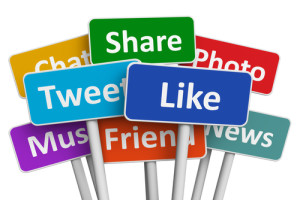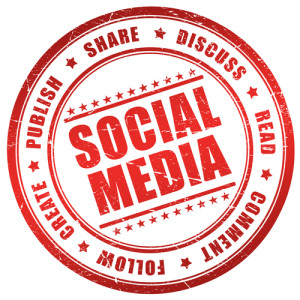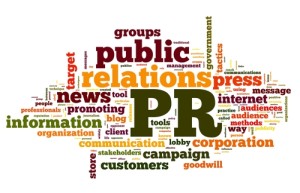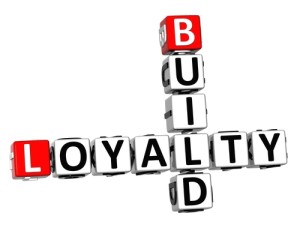According to social media business college the Society 3 Academy, this summer marks the 10th anniversary of Social Media. LinkedIn and Myspace were invented roughly within a few months of each other in the summer of 2003, completely unbeknownst to each other’s existence.
Emarketer.com reported in June that roughly 1.73 billion people use Social Media. That’s one in every four people on earth. How amazing is it that in just 10 years, Social Media has become such an integral part of our lives? Even more amazing, perhaps, is that Social Media hasn’t eliminated any industries, it’s only proven to grow as a non-parasitic entity in the economy, even during the recession.
When it comes to your Content Marketing plan, Social Media is the tortilla that wraps it all together.
If you haven’t followed along the last few weeks, this is the fourth and final installment in a series of articles entitled “The Content Marketing Burrito”, outlining a quality, effective Content Marketing strategy for your small business. We began with the hardiest, most important part of any quality burrito: the Meat, creating quality, original content. The second installment introduced the Beans: Public Relations. Last week, the third installment covered the Cheese and Pico de Gallo: SEO and Advertising, respectively.
Prepared with ripe messaging and a single voice, your burrito can be wrapped together in a tight, warm, strong Social Media tortilla.
Which Social Networks Should I Use for My Business?
eBiz MBA regularly updates this list of the most popular social networks. Clearly, Facebook is No. 1 by a lot. Note that the eBiz MBA list doesn’t count total number of user profiles created, but instead it counts monthly unique visitors, eliminating the skewed numbers that uninhabited profiles cause.
Obviously, your business should have its own Facebook page, which is now very easy to create. Use this basic tutorial from Hubspot to get your small business’s Facebook page off the ground.
It’s impossible to overdo your business’s involvement on Facebook. Create your business’s page as a “place” where customers can “check-in”, thus automatically adding a map that highlights your location. Make it a public page so anyone can “Like” it. Put your Facebook page address on business cards, in text messages and emails to everybody, at the top of bills and stationery. Your Facebook page should be your online home alongside your business web site. Post daily.
Twitter provides several unique ways to engage potential customers while building your SEO. Use this Sprout Social blog article to create your Twitter profile for your business. If your business’s Twitter page looks like this dentist’s (https://twitter.com/annmarieolson), you’re doing it right.
Twitter is another great forum to share ideas and pertinent news. Don’t be afraid to share your personal views on your business’s Twitter page, it will only provide a more personal connection with your customers, prospective or current. Twitter works great as a communication and education tool for your business. Followers can quickly see educational tips and news you tweet. Plus, they can react directly to you in a conversational manner seen by everyone else.
Create a LinkedIn page for your small business with your logo and messaging, link it to your personal LinkedIn profile (which is a MUST-HAVE for business success in today’s social economy), but then, don’t bother posting on your LinkedIn page very often. Use this excellent how-to guide from Social Media Today to create a useful LinkedIn business page.
Use LinkedIn to build fruitful relationships with cohorts and business interactions. Plus, many small business groups exist on LinkedIn where folks just like yourself share ideas, theories and best practices.
Few customers, if any, will follow your business on LinkedIn. However, if you run an MLM business, your customers who wish to be a consultant or executive within your business can link their personal LinkedIn profiles to your business page, enhancing the notoriety of both your business and their efforts.
Pinterest? Really? Absolutely. Even if you’re a manly man with a motorcycle repair shop and tattoos of your mother’s name buried in your chest hair rug. Pinterest creates SEO superstars, and remember last week’s article: SEO correlates directly to sales increases.
Use this how-to guide from Social Media Examiner to create your business’s Pinterest page. Many small business owners still explore how to make Pinterest work for their business. And while the customer engagement statistics aren’t quite to where most business owners would like to see (unless your wares include products from Etsy.com), the SEO results of Pinterest use are phenomenal.
Google Plus
It’s ranked sixth on the Top 15 list, but may be perhaps the most important social network for your small business. That’s right, Google Plus is like taco seasoning: it is the difference between a good Content Marketing burrito and a great one. It is true that far fewer people log on to their G+ profile each month compared to Facebook and Twitter. But G+ is Google. Your activity on G+ is treated like golden nuggets for SEO rankings.
Think of it like this: Google assigns a point value to all your social media activity. If Google gives your web site 5 points for a post on your business’s Facebook page that receives 3 comments from followers, and you get 5 points for the same post and reaction on Twitter, you’ll receive 25 points for the same post and interaction on G+.
Use this in-depth how-to article from Small Biz Trends to create your Google Plus business page.
Do not bother using Myspace. It’s now for musicians and artists. You’re a serious business owner who would get laughed out of Myspace if you tried to market on the Justin Timberlake-ized site. Even Google relatively ignores engagement on Myspace.
How to Integrate Social Media with Each Content Marketing Ingredient
Social Media & Advertising
Your ad campaign, whether clever or boring, must be extended on Social Media channels. Firstly, advertise on Social Media channels directly, specifically on Facebook, which has very cost-effective advertising programs. Hubspot posted an excellent article showing what makes certain Facebook ads more effective.
Unlike Twitter and Google Plus, Facebook provides you a personal, dedicated advertising account representative to guide you to success. Facebook wants your ads to succeed because if they do, you’ll continue advertising with them. Just remember this one strong suggestion: your Facebook ads (and all other advertisements you do) should point to your web site, not to your Facebook page, because it’s your web site that does business, not your Facebook page.
Anytime you launch a new ad, whether a Facebook ad or a Yellow Pages ad, whether a Google ad or a newspaper ad, share the ad on your social media pages. Share the image, announce where to find the ad, tell your followers why you launched the ad. Your followers want to see you succeed and they’ll love and share the ads, however boring they may be.
Social Media & SEO
Remember the target keywords you identified for your business’s SEO efforts last week? Use those keywords in your Social Media posts as often as possible. In random Facebook posts and tweets, in G+ conversations, and in Pinterest captions. Google reads your posts and associates keywords in your posts to the profile that writes the post. So, if Starbucks is always tweeting or posting or commenting about coalmines instead of coffee, Google may think Starbucks coffee is made from fresh roasted coal. (That example isn’t exactly true, but Google would start penalizing Starbucks.com for dabbling in topics it isn’t related to).
It also never hurts to post announcements of your SEO achievements. Doing so will direct traffic to your site related to the keywords that you’ve already nailed.
Social Media and Public Relations
For many Public Relations experts, Social Media is an important part of PR. In the organizational structure of large corporations, Jason Falls of Social Media Explorer argues that Social Media is 100% the PR department’s responsibility.
But you’re not a corporation, and at this point in your small business, you’re probably doing all the work. Many small business owners make the mistake of letting their teenage daughter manage their business social media accounts. Bad idea, says Hollis Thomases of Inc.com. And while I disagree with a few of his rationales in the linked article above, he makes a perfectly understandable point about the trickiness of humor in social media that many young people do not understand. Humor can make a boring Social Media account lively, but a tasteless joke can ruin a company forever.
Manage your own Social Media accounts. Read these 6 rules from Kelly Clay on Forbes.com about what never to do with your business social media account. Most importantly, never respond negatively to anyone on your social media accounts. It can immediately turn into a PR storm larger than anything you could’ve ever imagined. Read up on some “social media fails”, which are well-documented across the web. It’ll prepare you for what may come, and scare you into doing Social Media right.
Additionally, make sure to “brag” on your social media account about every PR opportunity you receive. Your followers love your positivity and successes. You can also use Social Media to gain some PR successes. LinkedIn and Twitter are perfect forums for reaching out to local media members. Believe it or not, they read tweets, and they will eventually respond. Just make sure not to overdo it and annoy the poor reporters. Oh, and definitely do not use Facebook or Pinterest for media outreach. Social Media can also acquire other types of PR successes, like opening up opportunities for blog sharing and post-sharing.
Social Media & Original Content
This should come as no surprise that every time you publish any new content, whether a blog or a video or anything else, you should share it on your business Social Media accounts. Spread it in LinkedIn groups and Facebook groups. It’s the best, most effective way to gain readers/viewers of your content.
Manage Your Social Media Expectations
Because Social Media is such a hot topic, and because 1 in 4 people on the globe use Social Media, small business owners tend to get over-excited about their possibilities on social networks. It’s very important to manage your expectations.
It Will Be Slow
Your business may have 1,000 customers, but your Facebook page may not break 20 followers for a couple months. Even with advertising and sharing your page with everyone your niece and nephew knows, you still may not get many followers for a long time. Be patient. Continue tweeting and Facebooking and Google+-ing. Eventually your pages will grow in followers. And as they grow, your SEO results will grow. Beware of neglecting your Google Plus account, however. After you’ve created it and regularly posted on it for a few weeks, Google expects you to continue. If you suddenly neglect the account because of a lack of followers, Google will notice and eliminate any SEO points you had built up simply by posting regularly for a few weeks.
You Will Get No Sales from Social Media
That’s right, Social Media does not directly push the sales needle. Twitter does not cut a check to the most retweeted tweet. You do not get paid for every follower you get on Facebook. Most of your followers are already your customers and would stay that way with or without your Facebook page. However, Social Media can indirectly boost sales in the following ways:
Free Advertising: Actively running your Social Media pages will get your business name in front of people, which can act as a form of advertising.
Customer Loyalty: Social Media can actually help you keep the customers you’ve acquired with regular engagement and interaction. It keeps your name fresh on their brains. People love to interact with their favorite stores, and your business is no different.
SEO: If for no other reason, do Social Media for the SEO benefits. I can promise you that all the effort you put into creating and updating your Social Media pages will directly pay off in SEO results, which directly lead to sales. If you don’t believe me, listen to the experts from Media Bistro.
Now that you’ve wrapped up your fresh content, warm PR, melted SEO and spicy Advertising in a fluffy Social Media tortilla, you can enjoy a bite of delicious homemade Content Marketing success that will fill your stomach with hot leads and successful sales revenue. Delicioso!
Guest Blog Post: Zach Zavoral is an award-winning journalist who specializes in public relations, advertising, SEO and social media.








